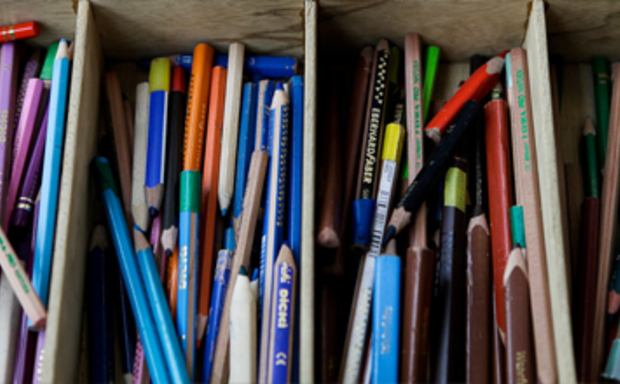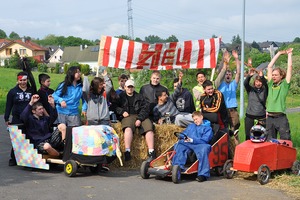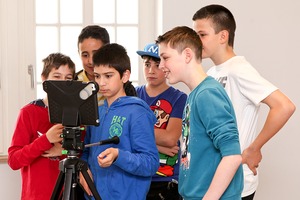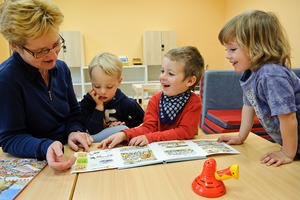Why this is important
Having to repeat a grade is expensive: Each year, the German states spend almost one billion euros on repeaters. But that is only one side of the coin. Failure in school also dramatically diminishes the career prospects of the pupils concerned. With a long track record of academic failure, many pupils lose their motivation to learn – and become more likely to drop out of school altogether.
What is needed, therefore, is a new understanding of education, learning and teaching. In schools and their environments, learning arrangements must be developed and implemented that empower youth to again experience success, build self-confidence and rediscover the joy of learning.
Possible strategies range from non-school-sponsored study camps to the expansion of all-day school services. That is because more time and a redesigned learning culture enable individualised support for children and youth and thus help ensure equality of opportunity.
In the annual o.camp, pupils at risk of having to repeat a grade or dropping out of school spend their Easter vacations together. Studying in small groups in a combination of learning labs and hands-on project-based learning, they catch up with coursework in German, mathematics or English, each pupil on their individualised schedule. By designing their own projects, they experience themselves in new ways. A multi-professional team of teachers, social education specialists and youth workers is there to support and guide participants. After the camps, the pupils engage in follow-up activities to reflect on their knowledge and learning methods together with the teachers and social educators. As a result, more than 80 per cent of o.camp participants successfully advance to the next grade level.
The method of aesthetic research is at the heart of the ‘Cultural.Explorers!’ programme. Children and young people go on a journey of discovery at their schools: They explore aesthetic and cultural phenomena in their lifeworld, ask their own research questions and look for answers. Their teachers and cultural partners support them in their enquiries, making cultural education an integral component of school development.
Communicating, understanding and learning: Language is fundamental to our success in education and social participation. The foundation for this success is laid in early childhood – not only in the family but also in nursery schools, pre-schools and primary schools. The ‘Education Needs Language’ programme connects nursery schools with neighbouring primary schools and government offices in an effort to improve children’s language skills. In that network, the experts create coordinated processes – for effective language training as a daily educational practice, for collaborating with parents, and for a smooth transition from pre-school to primary school. Moreover, the programme enlists the support of scientists to provide pathbreaking answers to the questions not only of practitioners but also of education policy makers and administrators.



